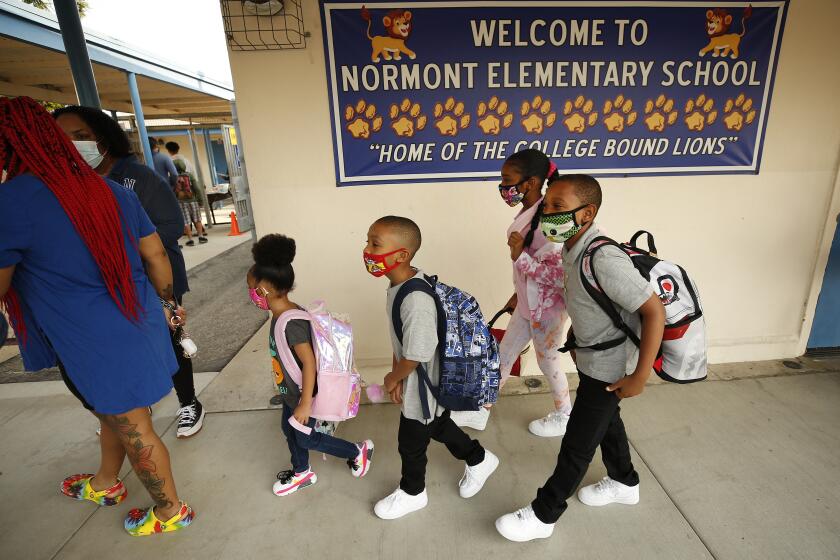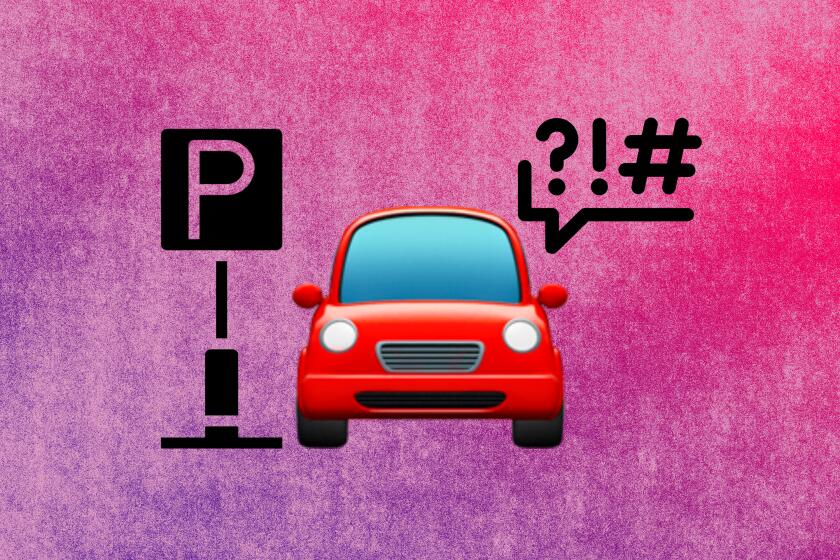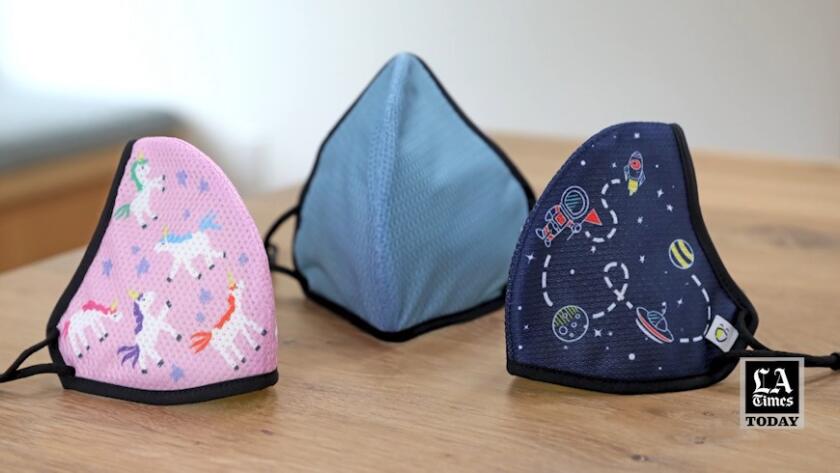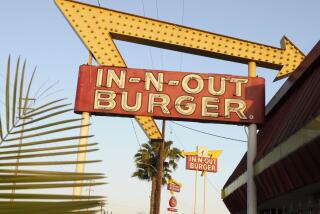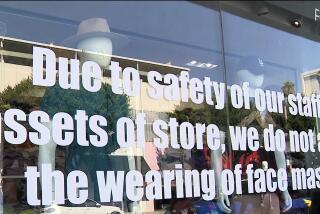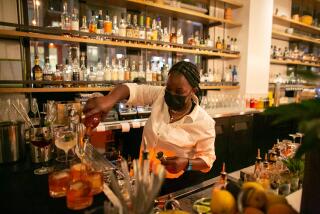Happy Masks became a COVID must-have. That sparked a back-to-school frenzy
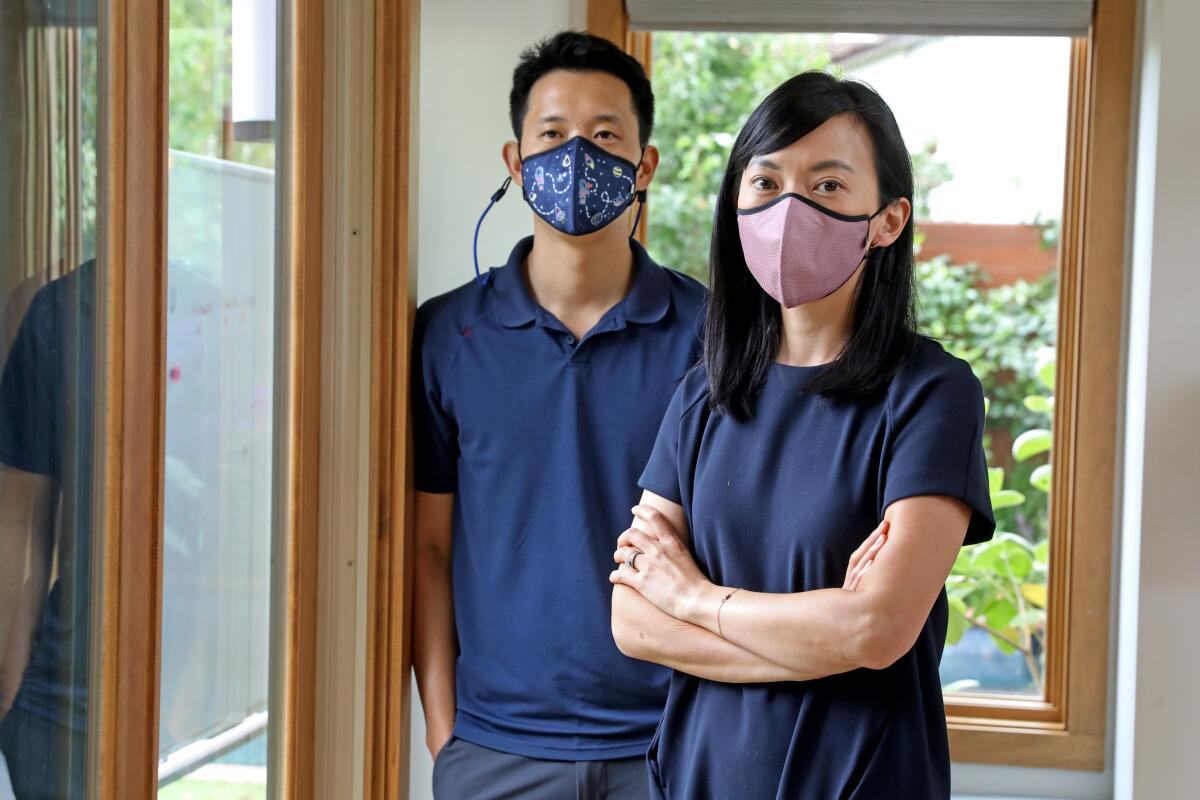
- Share via
Nikki Hart had to get some Happy Masks for her kids.
The Culver City mother of two had heard parents extol the fit and filtration of the company’s face coverings. And when her 4-year-old son tried on a friend’s mask, it didn’t fog up his eyeglasses.
So on Aug. 9, Hart logged onto the company’s website and prepared for the 6 p.m. release of a new batch of Happy Masks. With the return to school looming, Hart said she knew of several other moms who were hoping to score them too.
“It felt like I was trying to get tickets to the Rolling Stones,” she said.
Hart added three masks — of the Pro Series variety at $24 apiece — to her cart. So far, so good. “I hit submit to purchase and the next screen says, ‘I’m sorry, these are sold out,’” she said. “It is still 6 o’clock. It isn’t even 6:01!”
There was another Happy Masks release three days later, but Hart was stymied again. And when she polled others in a Facebook group for local moms, several noted that they’d also been unsuccessful.
Hart’s kids have other high-quality options, but she still joined Happy Masks’ wait list. Her interest, she said, is undiminished. “This is our Mt. Everest,” she said.
Hart isn’t alone. And her experience is the sort that has kept Happy Masks’ founders up at night.
Launched at the start of the pandemic by Melinda Hwang and her husband, Ed Fu, Happy Masks has gone from a homespun project run out of the couple’s West L.A. residence to a viral e-commerce hit propelled by the anxiety of tens of thousands of parents. By early this month, the company had sold masks to about 100,000 customers. But after a year or so of largely manageable growth, interest surged in recent weeks, leaving the couple scrambling to meet demand and keep the peace with increasingly unhappy customers. The situation, Hwang said, “created a lot of stress for us.”
How parents can keep their kids safe from COVID as they return to school.
The rapid success stems from a confluence of events. As the Delta variant of the coronavirus surged, parents across the country embarked on back-to-school shopping sorties — some for the first time in more than a year. Many found a glowing write-up of Happy Masks’ Pro Series in a Wirecutter report on the best face coverings for kids. The five-layer, reusable mask, whose underlying technology was co-developed by Hwang’s father decades ago, “filtered small particles better than many other masks,” reported the product review website, which conducted an independent lab test.
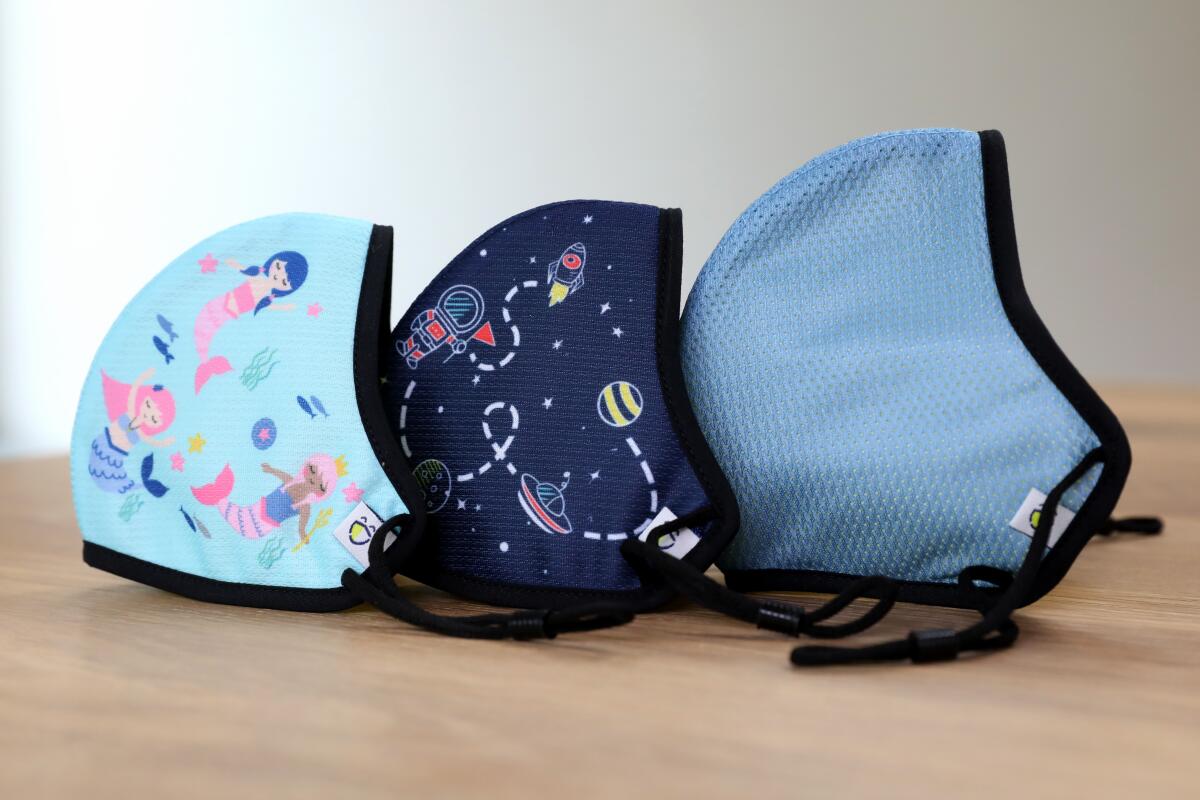
In late July, Happy Masks — whose children’s sizes account for about 80% of sales — was inundated with new customers and sold out entirely. The company took a new approach in early August, alerting customers of the exact time when more masks would be available on the website, calling the offering a “restock.” It was meant to be more equitable, but the plan backfired.
“It sold out in three minutes — we were in shock,” said Hwang, a former marketing executive. “Our purpose was to make it easier to buy them.”
The hype around Happy Masks only seemed to grow, propelled in part by social media. Prospective customers told The Times that the dearth of supply made them covet the protective gear even more, and four subsequent releases were equally harried. Restocks on Aug. 9 and 12 saw about 16,000 visitors swarm Happy Masks’ website each day, but only 10% managed to make purchases, Fu said.
Hwang said that hundreds of emails “of anger and frustration” that the company received after each offering left her feeling as if she’d “let everyone down.” Among the messages were those from the unhappy parents of immunocompromised children and customers who’d supported the company in its early days.
“I couldn’t take another restock,” she said. “I burst into tears after one.”
It was evident to the founders that they needed to find a new approach. And quickly.
A ‘pet project’ takes off
The arc of Happy Masks’ origin story can be traced back to Hwang’s father, an epidemic in Taiwan and a scientific side project. It’s a compelling creation narrative, though the company’s founders are guarded about some details. It all began about 20 years ago:
At the time, Kirk Hwang, now 72, was president of a Taiwanese healthcare products company, his daughter said. There, he collaborated with a scientist on the creation of a new type of filter for use in wastewater treatment.
After Taiwan’s 2003 SARS outbreak, the scientist began tinkering with the technology to see how it could be adapted for a mask. (Happy Masks declined to disclose the man’s name, citing his preference for privacy.)
It was far from a commercial venture, with masks going to friends and family, Melinda Hwang said. “This was his pet project,” she said.
In March 2020, as the COVID-19 pandemic took hold, Hwang received a package from her mother in Taiwan. It included an assortment of the scientist’s masks, whose design had been honed in the intervening years.
When Hwang and Fu, both 39, donned the masks for walks with their family — they have three children under the age of 9 — neighbors inquired about the face coverings. They have a unique shape that calls to mind a parrot’s beak and makes them stand out.
As friends learned about the mask, they wanted some, too. Hwang asked her mom for more.
Parking in Los Angeles is about luck and skill. So save time and money by learning these hacks with yellow curbs, green curbs, holiday rules, valet and more.
Hwang offered masks to parents in a Facebook group for one of her daughter’s classes, selling them at cost. Her sign-up form quickly filled up with 100 orders for a total of about 1,000 masks. “I locked the spreadsheet!” Hwang said. “I showed it to my mom and I said, ‘Can we even get this many?’”
The scientist’s masks arrived in mid-April; Hwang and Fu left them on their doorstep in brown bags for customers to retrieve. “I think our neighbors thought something shady was going on,” she said, laughing.
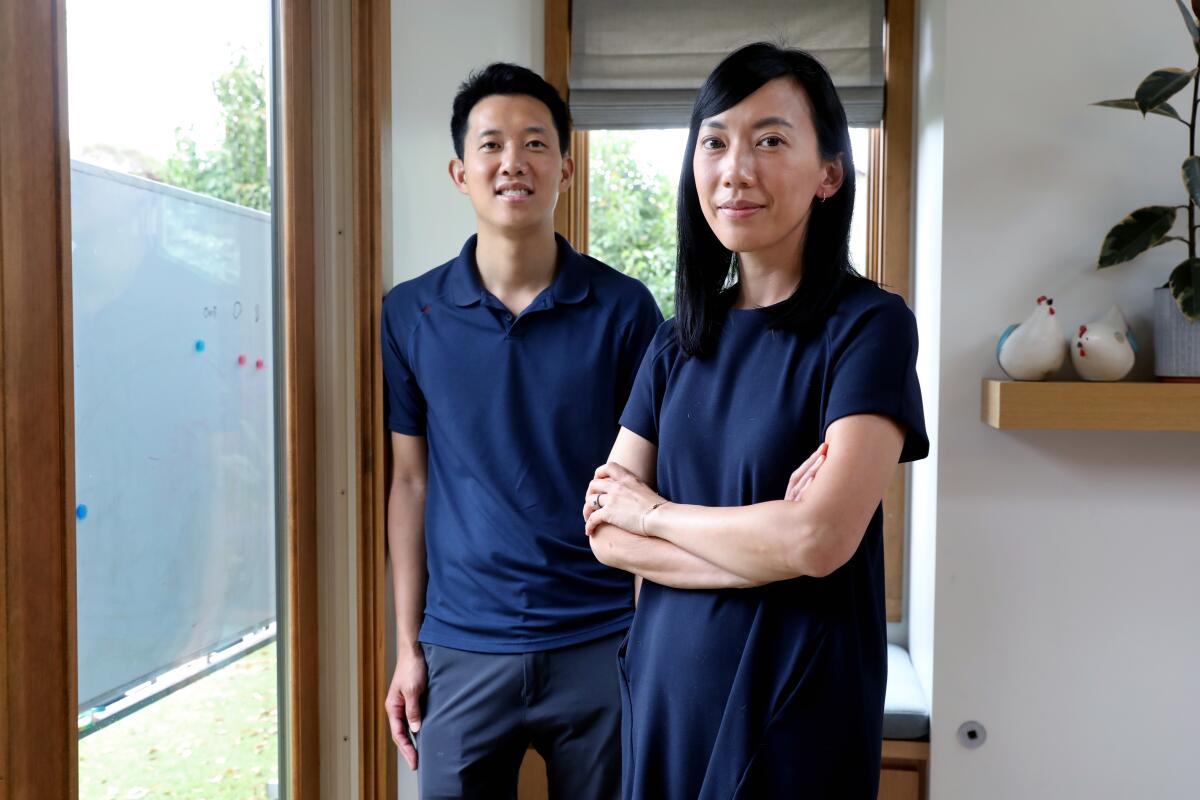
Hwang, who until January 2020 served as marketing director of Capital Group, an investment management company, soon sensed that it could be a viable business. Her confidence grew when she visited a downtown L.A. garment factory and asked the owner if he could reproduce her mask. “He said, ‘There is no way you can find anyone to replicate this. The detail, the trim — no one has the skill in the U.S. And if you find them it will be really expensive,’” she recalled. “I knew it couldn’t be copied.”
Hwang solicited orders a second time in mid-April — this time the spreadsheet “went viral,” she said. It amassed about 500 orders for a total of roughly 2,000 masks.
In late April, they branded the venture Happy Masks; a month later its website made its debut.
By then, Happy Masks had entered into a partnership agreement with the Taiwan-based scientist, who remains a family friend and last year was awarded a U.S. patent for the mask’s filter technology, Fu said.
The business remains a family affair: Hwang’s mother, Angela Hwang, 70, oversees operations in Taiwan, where all production is handled. And Kirk Hwang, who previously worked on mask technology as a scientist at 3M, focuses on research and development. The company employs 15 people in the U.S. on a contract basis — some at an Ohio fulfillment center overseen by a relative. Hwang is chief executive of Happy Masks, which has not taken on any outside funding, instead growing via “100% sweat equity,” Fu said.
The mask market is broad, with many options for consumers — from inexpensive disposable versions to artsy cloth coverings sold on Etsy and designer options studded with diamonds. Happy Masks’ face coverings appeal to those interested in high-grade filtration. Whereas some competitors’ masks use static electricity to trap particles, Happy Masks’ product uses a nano-fiber membrane filter that is sewn into the face covering. In layman’s terms, the filter has an ultra-fine web-like barrier — made of fibers 1/500th the width of a human hair, according to Hwang — that blocks particles.
Besides the unique filter, the masks have a distinctive shape. “There is an origami-like process to create the beak shape,” said Fu, who was chief marketing officer of jobs listing service ZipRecruiter in the mid-2010s. It “is what gives you space between your nose and mouth.”
Happy Masks has touted the design with ads that read: “Meet the Beak. No more muffled voices or stuffy breathing.”
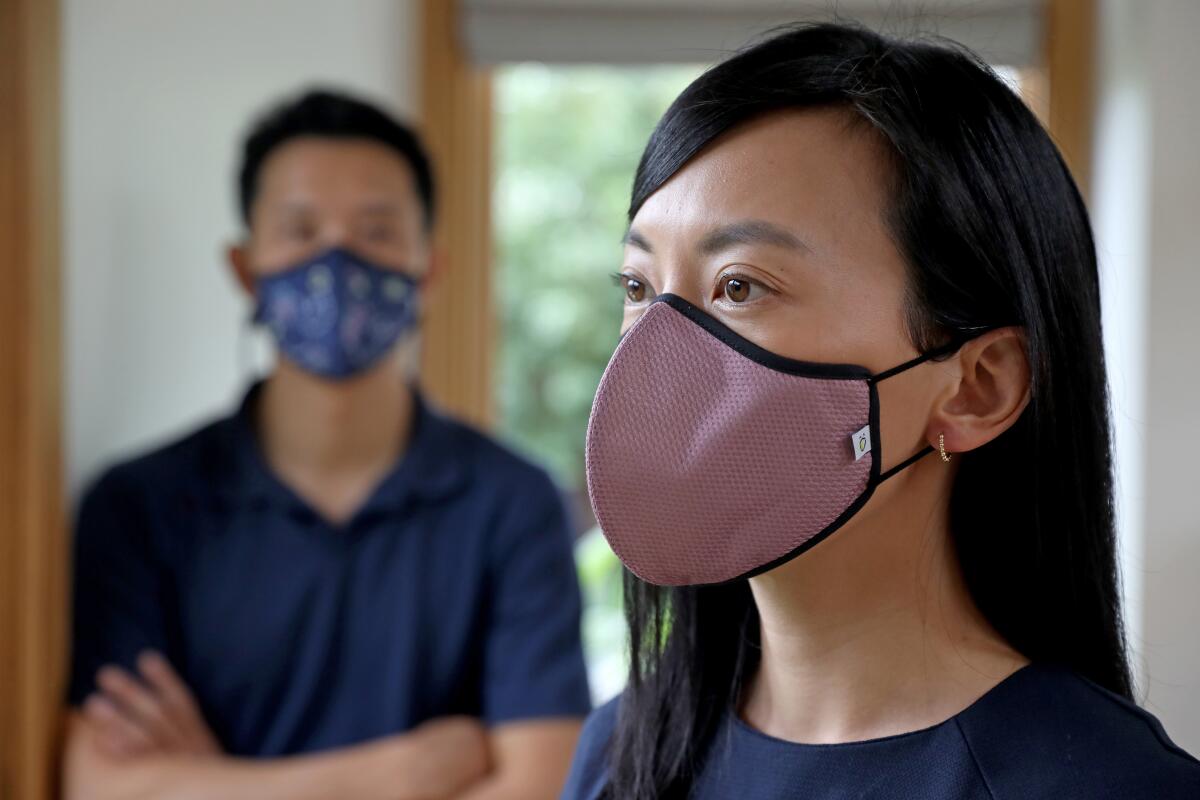
Hwang and Fu certainly have the marketing credentials, having worked in the field. They also graduated from MIT Sloan School of Management and Harvard Business School, respectively. In 2010, the couple self-published “The HBS Blueprint: Double your chances of getting into a top business school.” Sample section title: “Figure Out What Your Customer Wants.”
Parents praised the Happy Masks Pro Series’ fit, finish and filtration.
“There is no higher praise than your 6-year-old wearing a mask all day and forgetting he has it on,” said Laura Gaskill, a mother of two boys from Naperville, Ill., who has bought 25 Happy Masks. “We’ve been so grateful to have a little bit of control over something as completely chaotic as COVID.”
Others are impressed by the company’s approach to transparency. Dr. Nupur Kumar, who practices family medicine in L.A., said she appreciated that the company’s website includes the results of tests from an independent lab showing its products provide 99.9% bacterial and viral filtration.
“I always recommend this mask,” said Kumar, who has not been compensated by Happy Masks for a testimonial that appears on the company’s website. “I’m talking as a mom and it’s about protecting your family.”
At the request of The Times, Dr. Jeffrey Klausner, clinical professor of population and public health sciences at USC’s Keck School of Medicine, reviewed the lab report on Happy Masks’ website that assesses the face coverings’ viral filtration efficiency.
“This is a good option,” said Klausner, explaining that an N95 mask would deliver similar performance. But he noted that the Pro Series’ high cost means it is probably a choice only for those “fortunate enough to be in the disposable-income set.” And he said that whether a mask is “99% or 95% [effective] may not be a clinically significant difference.”
The company also sells a no-frills mask, the Base Series, which costs $19 and includes the same filter. Also sold out, it accounts for only about 5% of sales. (Happy Masks declined to disclose its net income or revenue.)
Still, parents who can afford the $24 masks are happy to pay for them — if they can get some. And their efficacy is a balm for the anxious moms and dads of young kids who cannot yet be vaccinated.
“They fit my kids really well; they keep us safe,” said Erica Walker, a mother of three kids under the age of 13 who lives in Claremont. “We don’t want to wear a useless mask, because they can’t be vaccinated. That’s my main job, to keep my kids safe.”
The new approach
Happy Masks isn’t the first company catering to kids that has experienced a surge in business during the pandemic. Last year, as families spent more time in their homes, the $229 Nugget modular couch went viral and became a difficult item to snag.
But unlike the Nugget, face masks are meant to protect against a deadly virus. The stakes are much higher. And the founders know that.
“We don’t want to feed into the frenzy any more,” Fu said.
At Nugget Comfort, the pandemic brought a surge in demand so steep that the kids furniture company had to start selling Nugget couches through a lottery system.
The restocks appeared to do just that. They resembled a “drop” — a hyped-up release of a consumer product at a publicized date and time. They are used to peddle everything from limited-edition sneakers to luxury wristwatches and nonfungible tokens, or NFTs.
“That is not the intention — selling masks is not about creating hype at all,” Fu said.
The mania surrounding the face coverings may be out of Happy Masks’ control. Franklin Shaddy, assistant professor of marketing and behavioral decision making at UCLA Anderson School of Management, believes there’s a “keeping up with the Joneses” element to the company’s popularity. After all, there are other viable mask options — the Wirecutter story praised a handful of other brands. But those don’t have the same buzz.
“Maybe it is slightly better, or different in some idiosyncratic way,” Shaddy said. “But once we’ve decided this is the gold standard mask — and this is the one you can’t get your hands on, and you have to jump through a bunch of hoops — outfitting your kids with a Happy Mask or an equivalent substitute is way more about social signaling.”
Fu disagreed: “I think there is very little social signaling,” he said. “There is a genuine fear around COVID, and there is a deep desire to want to make sure you’re doing everything you can to protect your child.”
That can be seen in the frustration of parents unable to purchase masks earlier this month, some of whom took to Instagram to publicly register complaints. During the uproar, Hwang said, one comment called the business “a marketing scam.”
“It was a complete shift in dialogue in terms of how our customers talked to us,” she said.
Fu and Hwang drew a lesson from Nugget’s response to the commotion over its configurable couch last year. For a time, Nugget customers had to enter a lottery system for a chance at purchasing one.
“They evolved in response to their customers,” Fu said. “That’s what people appreciate.”
Happy Masks took a similar tack, rejiggering its approach to sales in mid-August. It introduced a preorder system, allowing people to pay for masks that are estimated to ship, as of now, in mid-November. And it modified the restock process by requiring customers to sign up for a waiting list. Shoppers who sign up will be notified when they, and others, can purchase masks in a password-protected sale. The company’s first “private restock” was held Aug. 19. Fu said it went “much better.”
“The psychology of it is, ‘Well, if I have to wait then I’ll wait for my turn, but at least I don’t have to scramble and feel like I’m going into this mud pit with everybody,’” he said.
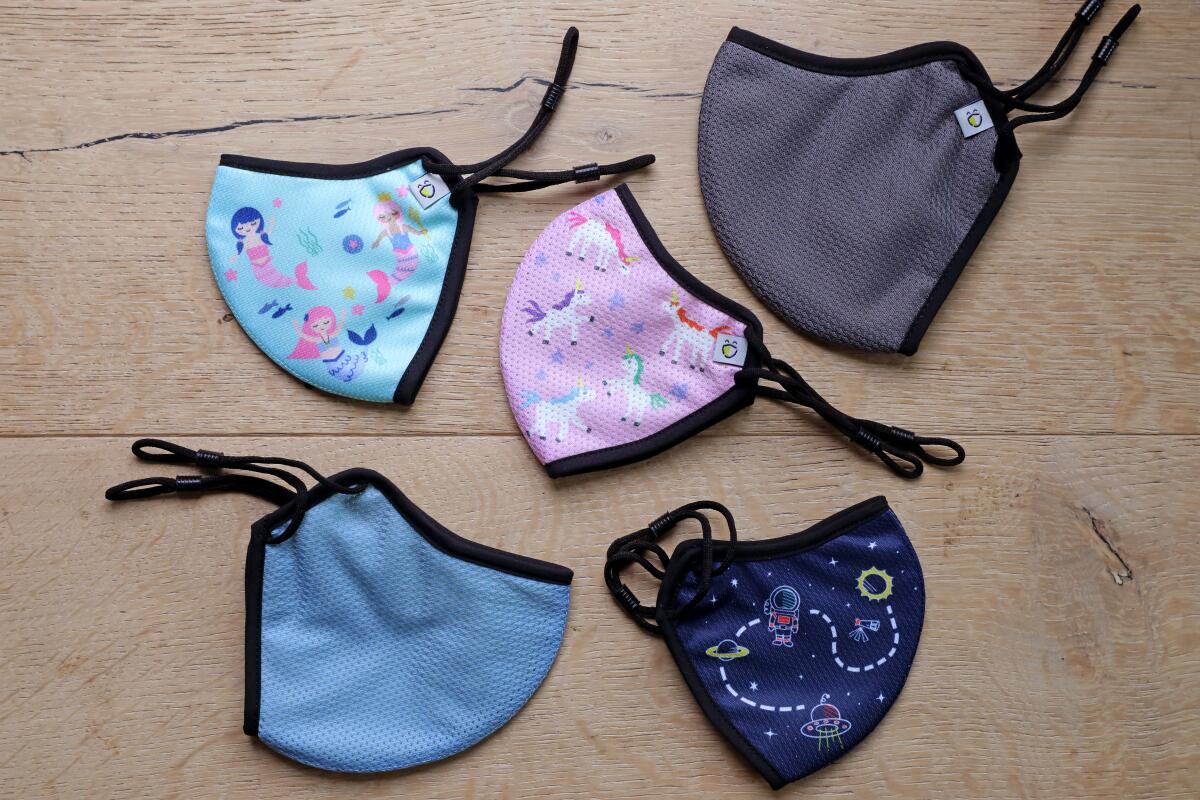
Initially, every customer participating in a private restock was able to purchase up to five masks, but that led to unsold inventory. So Happy Masks announced a change on Aug. 25. Moving forward, “we will invite more people than we have masks for,” it explained on Instagram, noting that the majority of invitees would still be able to buy the face coverings.
Early reaction to the tweak was mixed on Instagram. One commenter said she appreciated Happy Masks’ effort to “create an equal opportunity for everyone.” Another added: “Well this sounds like it just got stressful again.”
The new approach to sales doesn’t address the company’s bigger issue: It needs to produce more masks. To do so, Happy Masks is hiring workers for its existing manufacturing facility in Taiwan. And it is trying to set up a second production line there, but the process has proved difficult.
“We tried out a new factory and we got a photo — the inside yellow fabric was all lumpy,” Hwang said. “It’s not an easy thing to do.”
These days, the founders wear many hats — some of them customer service alter egos, in Hwang’s case.
“We have faked customer service names to make it feel more personal, and someone will be like, ‘That Denise has done an amazing job.’ And I’m thinking: That was me,” said Hwang, who expects to cede some customer service duties as the company grows.
Of course, Happy Masks can’t make every customer, well, happy. Setting aside the issue of snagging the masks, some people simply may not like them. Take Renee Brown’s kids.
An Orange County mother of two she bought Happy Masks face coverings ahead of a May trip to Hawaii. But her children didn’t take to them, with one complaining about the fit. Brown was “bummed it wasn’t more highly liked,” and espoused a view — one tinged with a bit of hopelessness — that could explain at least some of Happy Masks’ success:
“That’s all you can do as a parent right now, buy s— because you can’t give them a vaccine.”
- Share via
Watch L.A. Times Today at 7 p.m. on Spectrum News 1 on Channel 1 or live stream on the Spectrum News App. Palos Verdes Peninsula and Orange County viewers can watch on Cox Systems on channel 99.
More to Read
Inside the business of entertainment
The Wide Shot brings you news, analysis and insights on everything from streaming wars to production — and what it all means for the future.
You may occasionally receive promotional content from the Los Angeles Times.

